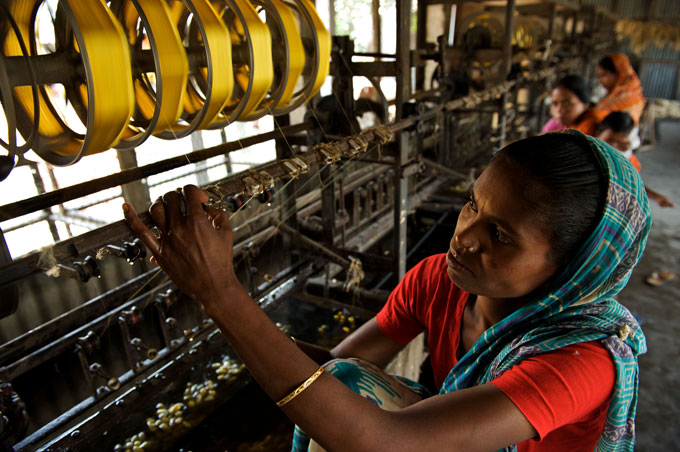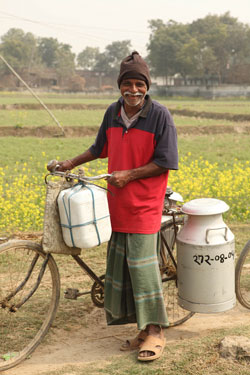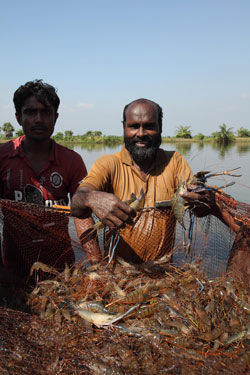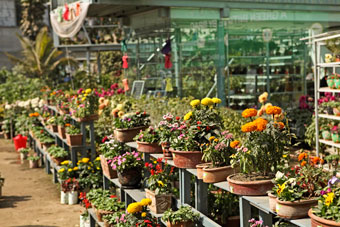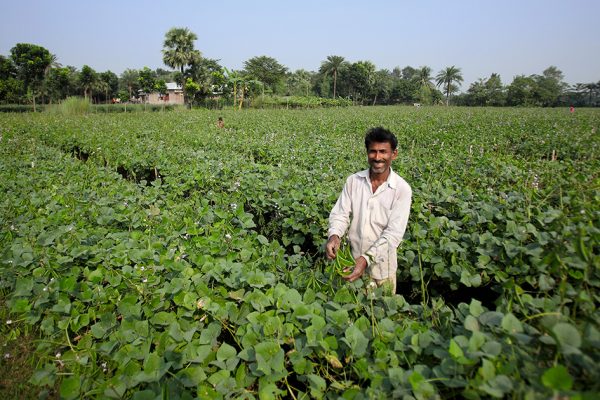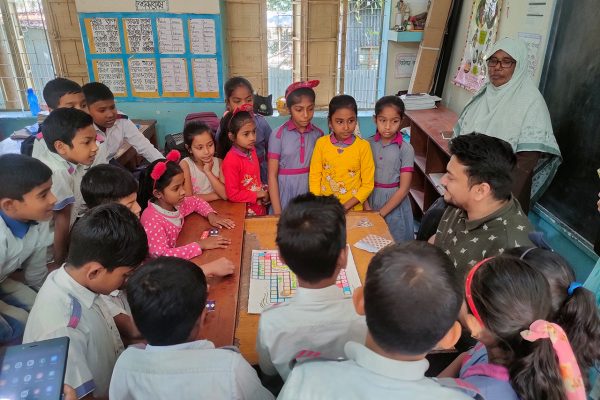How BRAC Enterprises became sustainable solutions
Reading Time: 3 minutes
BRAC’s social enterprises have always been based on a drive to find alternate livelihoods for Bangladesh’s rural poor. None were started simply as business endeavours; instead, these unique enterprises have stakeholders. While every business has a purpose of maximising profit, BRAC’s purpose is poverty alleviation. These enterprises provide 72 per cent of the funds for BRAC’s own programmes, ensuring self-sustainability by reinvesting 50 per cent of their profits back into development interventions.
BRAC’s social enterprises have always been based on a drive to find alternate livelihoods for Bangladesh’s rural poor. None were started simply as business endeavours; instead, these unique enterprises have stakeholders. While every business has a purpose of maximising profit, BRAC’s purpose is poverty alleviation. These enterprises provide 72 per cent of the funds for BRAC’s own programmes, ensuring self-sustainability by reinvesting 50 per cent of their profits back into development interventions.
In the beginning, around 1976, BRAC realised women were the most disadvantaged groups in rural communities, requiring a solution to empower them through income-generating opportunities. Thus BRAC began its silk production experiments in 1978. By the end of 1982, the project evolved into an enterprise with over 800 women rearing and spinning silk.
Take Aarong for instance, which has emerged as one of the country’s largest fashion retail chains. In 1978, it began as a humble project to provide market access to rural women through sericulture, simultaneously preserving the art of nakshi kantha and jamdani. In 2004, it contributed almost USD 2 million to BRAC’s development activities, which increased to USD 4.6 million by 2007. Creating employment for more than 35,000 rural artisans through the Ayesha Abed Foundation, it is now giving them free access to BRAC’s six core development services through the artisan development initiative. But beyond this, Aarong also has tens of thousands of independent producers earning a livelihood through arts and crafts.
During the 70s, BRAC began its poultry operations as a grassroots experiment to create income-generating opportunities for rural poultry farmers. It has since created a platform for them to access market linkages next to an increasingly demanding urban market. Today BRAC Chicken cross-collaborates with BRAC Poultry and BRAC Feed Mills, creating a value-adding chain ensuring higher-yielding produce for poultry farmers.
Despite the abundance of milk production, the demand for milk in villages was not enough to generate a decent income for dairy farmers. A lack of refrigeration systems resulted in frequent wastage of large amounts of unsold milk. As a solution, BRAC established BRAC Dairy and Food Project in 1998, to collect milk from rural dairy farmers across the country and sell them to the urban market as processed milk and milk products. This enterprise cross-collaborates with BRAC Artificial Insemination, another social enterprise, which provides dairy farmers with access to better quality breeds of cows. Launched in 1985 initially as a partnership initiative with the Bangladesh government, this enterprise has increased the income of many farmers, because better breeds provide higher yield of milk and stronger offspring.
BRAC Salt started in 2001 in Cox’s Bazaar, aiming to address the acute iodine deficiency among rural poor, while ensuring a sustainable income for local salt farmers. It also introduced Minamix, a high mineral-based salt for cattle, which helps farmers raise healthier cows producing a greater yield of milk and meat.
As a post-war rehabilitation effort for destitute women, especially in remote areas that are surrounded by water, BRAC Fisheries started out in 1976. When there was a lack of access to quality fish spawn, BRAC initiated its own fish hatcheries to provide high-yield fish spawn. The project gradually evolved into an enterprise in 2008. It has been an outstanding platform for rural fish farmers to earn a livelihood through modern fish farming ever since.
As a response to the reproductive health needs of poor women, especially school-going adolescents and pregnant women in rural Bangladesh, BRAC Sanitary Napkins and Delivery Kits started in 1999. It was to address the retrograding problems where school drop-out rates and absence of girls sharply increased when they hit puberty and where an assortment of safe birthing tools were necessary. To make affordable, sanitary and biodegradable products, this enterprise employs ultra poor women from rural communities, providing them with a source of income.
Aiming to encourage forestation and raise awareness on the importance of planting trees, BRAC Nursery started in 1988. Today this enterprise markets household plants – both ornamental and medicinal. Additionally, to address paper wastage, BRAC initiated its Recycled Handmade Paper enterprise in 2000. It collects wasted paper from urban corporate offices and recycles them into fancy handmade paper products. Here also ultra poor women are employed, giving them a chance to generate a steady income.
BRAC’s enterprises were first initiated to fill the gap in a lack of sustainable development initiatives. The needs were always there – the need for an opportunity to utilise one’s skills and generate income, the need to learn and foster, and the need towards a sustainable future. While BRAC’s other programmes have been catering to specified needs, its enterprises catered to them all. After all, when the problems of the development sector are ever-changing and persistent, we must come up with sustainably adaptive solutions.
Miftahul Jannat Chowdhury is a senior communication officer and sub-editor at BRAC


